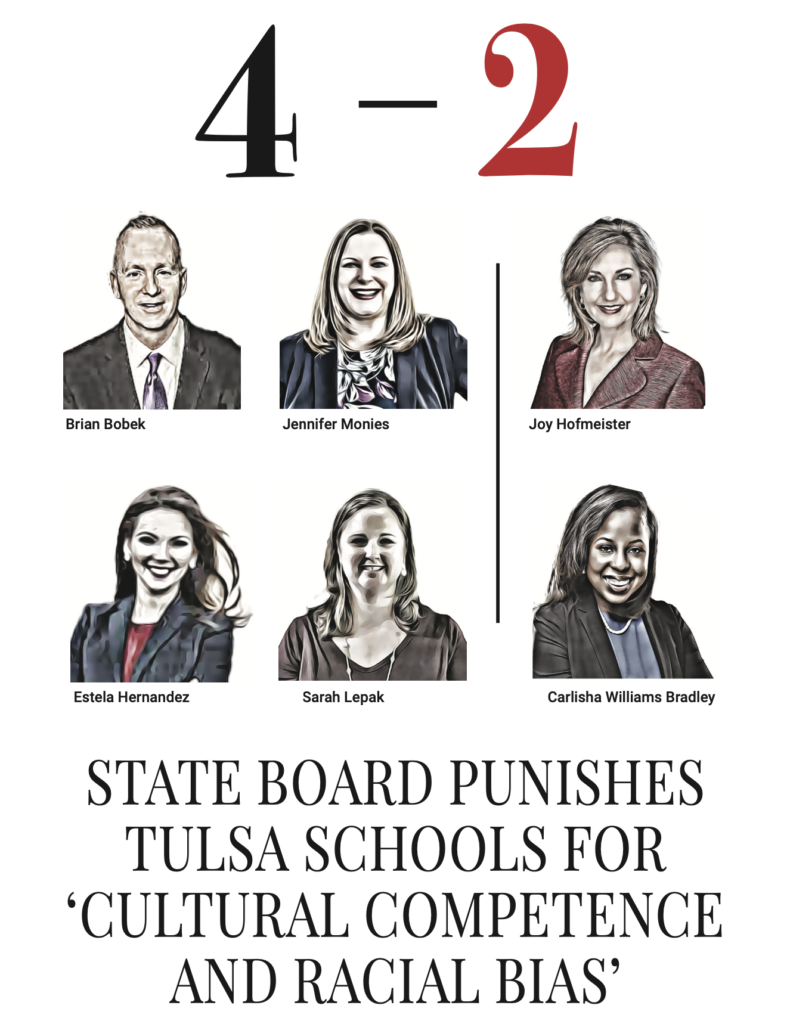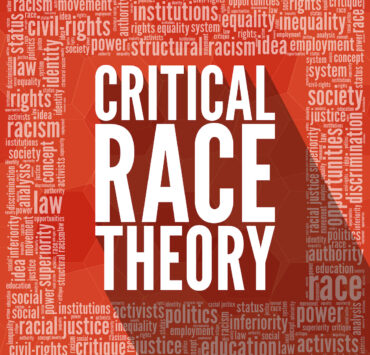John Neal
The Oklahoma Eagle
PHOTO
Adobe Images
The downgrading of Tulsa Public Schools accreditation has bolstered legal efforts to challenge the constitutionality of Oklahoma House Bill 1775, as a perceived violation of educators’ free speech. The statute, signed into law in 2021, targets the teaching resources and approach many public schools employ to discuss Oklahoma’s and the country’s history regarding race. Such resources are helpful when contextualizing the historic and present-day relationships between Black Americans and America.
In an exclusive interview with The Oklahoma Eagle, Megan Lambert, the legal director of the American Civil Liberties Union Oklahoma, discussed how the recent broadly perceived overreach by Oklahoma State Board of Education has helped bolster a lawsuit the organization is advancing against H.B. 1775.
On July 28, OSBE downgraded TPS’s accreditation to “Accredited With Warning,” a penalty more severe than the recommendation of its general counsel, Brad Clark. Lambert described the recent action against TPS as “extremely troubling.”
The ACLU is seeking to amend its lawsuit against H.B. 1775 with a supplemental submission concerning OSBE’s action, she explained. Lambert indicated that the action against Tulsa Public Schools was further proof that H.B. 1775 affectively “silence and punish speech.”

TPS downgrade will bolster ACLU’s fight
Gov. Kevin Stitt signed into law on May 7, 2021, as a wave of Republican-controlled states passed similar laws banning the talk about race and gender in K-12 and higher education institutions.
“We can and should teach this history without labeling a young child as an oppressor or requiring he or she feel guilt or shame based on their race or sex,” Stitt said when he signed the law. “I refuse to tolerate otherwise.”
Stitt told The Oklahoman that said some public school districts and critics are overreacting.
“People are kind of blowing this out of proportion,” Stitt told The Oklahoman.
The ACLU and the Lawyers Committee for Civil Rights Under the Law made their initial filing in the case on Oct. 19, shortly after H.B. 1775 became effective.
“This is an action brought by Oklahoma students and educators challenging the state legislature’s unprecedented and unconstitutional censorship of discussion about race and gender through the passage of HB 1775,” the filing said.
They further seek a preliminary injunction halting the law’s enforcement in the U.S. District Court for the Western District of Oklahoma, it added.
At the time, Oklahoma was one of eight states that passed similar laws aimed at censoring discussions about race and gender in the public school classroom, and this is one of the first federal lawsuits facially challenging such statewide bans.
Lambert expressed confidence that the TPS accreditation case will bolster their efforts, but without the injunction, the case will likely take years to resolve. Lambert acknowledged that the ACLU had discussed this matter with Tulsa school officials but declined to disclose the substance of those discussions.
She characterized the school district’s teaching module as “benign implicit bias training.”
In the ACLU’s supplemental submission this training course was provided by Vector Solutions, which has over 34,000 customers globally. In contrast, the OSBE’s action was triggered by a single white teacher complaint within the district, which has over 2,000 teachers.
The filing also notes that “implicit bias” had been “amply documented by social scientists for decades” and that “innumerable studies have shown are innate to the human experience.”
The lawsuit alleges the law violates the First and Fourteenth Amendments to the U.S. Constitution, primarily by being vague, overly broad, and violating free speech. The harsh sanctions on TPS have already had “the broad complications they feared for schools,” according to Lambert.
In the Tulsa case, OSBE’s general counsel Brad Clark told the state board that the training materials contained no “express statements” or “explicit content,” violating the eight concepts prohibited in H.B. 1775.
The Republican-controlled Oklahoma legislator lifted the eight concepts from then-President Donald Trump’s September 2020 “Executive Order 13950 on Combating Race and Sex Stereotyping.” Trump’s order was later overturned by a federal district court and revoked by President Joe Biden on Jan. 21, 2021.
While recommending a lesser sanction to the state board, Clark nevertheless based his finding on an audio portion of the training to Tulsa’s teachers and staff that he claimed violated the law in “spirit” or “design.” In a 4-2 vote, the state board levied a more severe penalty, without ever listening to the audio portion of the training noted by the white Memorial High School biology teacher.

H.B. 1775: horrifying or innocuous
Lambert said that H.B. 1775 is so ambiguous and uninterpretable that it is “horrifying or innocuous dependent on who is doing the reading.”
She gave the example of the 1921 Tulsa Race Massacre, which can be taught in schools as a historical fact, but teachers cannot know what they can say about it without fear of legal reprisal under the new law. The law provides not only for diminished or loss of accreditation for schools but also for the loss of administrator and teacher license certifications.
In its “Fourth Cause of Action,” the ACLU’s lawsuit goes beyond the law’s vagueness and confusion to charge the law has a “Racially Discriminatory Purpose.” It cites numerous directly attributable quotes to state legislators, who made racially charged statements during the law’s consideration and passage. Such comments included describing Black Lives Matter as a “terrorist group” and likening the movement to the Ku Klux Klan. Or “Police Brutality is a lie…Those are the kinds of lies we must end.”
The ACLU’s filing highlights that, “Comments by HB 1775’s sponsors make it explicitly clear the HB 1775 targets the elimination of curriculum, instruction, conversation, and programming designed to improve the educational, social and civic experiences of historically marginalized groups.”
In the supplement, that includes Tulsa Public Schools’ accreditation downgrade, attorneys seeking to overturn the state law wrote: “In short, the only thing that is clear or straightforward about the Act [HB 1775] as the Board’s and OSDE actions confirm, is the message it sends to school districts and teachers: Steer clear of any discussion of race or bias that could possibly be interpreted as causing offense, or risk losing your accreditation status or your teaching license.”
Stitt told The Oklahoman he supported the state board’s actions against Tulsa and Mustang, saying the punishment was not too severe.
“I support the school board. … You have to follow the law,” Stitt told the newspaper. “But here’s the deal, what did (the board) do? They just gave them a warning, a document that’s on a file, (that says) don’t do it again. It’s not the end of the world for those school districts.”
About The H.B. 1775 Lawsuit
The law: It was directly excerpted from then-President Donald Trump’s failed Executive Order 13950 – prevents students from learning American history from the perspective of historically marginalized communities. to prohibit conversations related to “implicit bias,” “systemic racism” “intersectionality,” “diversity” “white privilege,” among other concepts.
Plaintiffs: The was filed by the American Civil Liberties Union, ACLU of Oklahoma, the Lawyers Committee for Civil Rights Under Law, and pro bono counsel Schulte Roth & Zabel LLP on behalf of plaintiffs the Black Emergency Response Team; the University of Oklahoma Chapter of the American Association of University Professors; the Oklahoma State Conference of the National Association for the Advancement of Colored People; the American Indian Movement Indian Territory on behalf of itself and its members who are public school students and teachers, a high school student, and Oklahoma public high school teachers Anthony Crawford and Regan Killackey.










